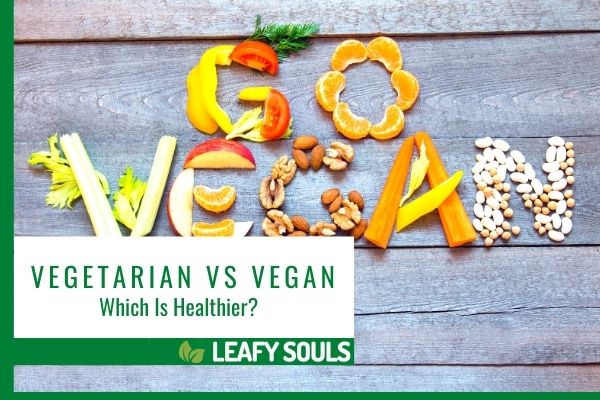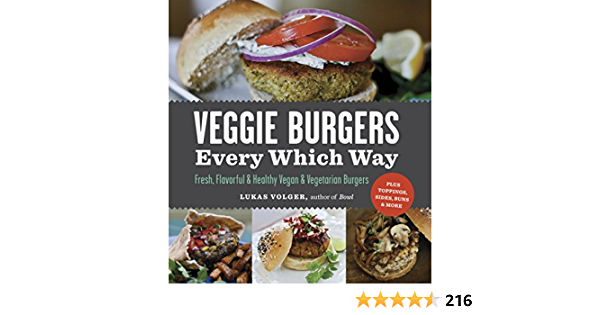With the growing trend toward healthier eating, many are making changes to their dietary practices. Particularly, more individuals are turning toward plant-based diets in an effort to enhance both health and lifestyle. Making the decision to cut out meat can be overwhelming, but for those new to vegetarianism or just want to learn more, this article will address the question "which is healthier: vegan or vegetarian?".
Let us explain the health advantages of vegan and vegetarian diets, so you can decide which is healthier for your lifestyle. By breaking down the differences between a vegan and vegetarian diet, as well as exploring their respective health advantages, we'll help you determine which lifestyle is healthier for you in the long run. By the end of this article, you should have a firm grasp on the major distinctions between veganism and vegetarianism. Furthermore, you'll have enough information to make an informed decision based on your individual needs and desires. So let's dive in and investigate some of the health implications associated with each diet to discover which one is best suited to you.
I. Health Benefits of Eating Vegan
When it comes to veganism, it's often touted as the "healthiest" way of living. This is largely because vegans abstain from all animal products such as meat, dairy products and eggs. Furthermore, vegan diets tend to be high in fruits, vegetables, nuts, seeds and whole grains which offer numerous advantages for human health.
One of the major reasons veganism has gained recognition by health experts is its potential to reduce heart disease risk. Eating vegan helps lower saturated fat intakes to the optimal levels recommended by doctors, which in turn lowers blood pressure and decreases the likelihood of developing heart disease.
Another health advantage of a vegan diet is its high fiber content. Fiber plays an essential role in regular bowel movements and may reduce the risk of colon cancer. Since animal products do not contain any fiber, eating vegan provides you with additional sources for fiber to keep your digestion functioning optimally.
A vegan diet is an excellent way to increase your intake of antioxidants, vitamins, and minerals. Many plant-based foods are packed with these vital nutrients which help protect the body from free radicals - unstable molecules which can damage cells and lead to diseases like cancer. A vegan approach for getting enough antioxidants is best as plant-based products tend to contain higher percentages than animal products do.
Finally, veganism has the potential to have a beneficial impact on the environment by abstaining from animal products. Livestock farming contributes significantly to greenhouse gas emissions, so veganism helps reduce this carbon footprint and helps to reduce its negative impact.
In conclusion, veganism offers numerous health advantages such as reduced risks of heart diseases, improved digestion, and an abundance of essential nutrients. Furthermore, it has a beneficial impact on the environment through lower greenhouse gas emissions. For those just starting out in this lifestyle change, there are numerous resources available to ease them into transition - making your vegan journey smoother than ever!
In the following section, we will outline the health advantages of a vegetarian diet so that you can compare them and make an informed decision.
II. Health Benefits of Eating Vegetarian Cuisine
Vegetarianism, like veganism, is a popular diet choice known for its health benefits. A vegetarian diet involves abstaining from meat, fish and poultry but may include dairy products and eggs. Studies have demonstrated that vegetarianism may reduce the risk of chronic diseases like heart disease, obesity and some types of cancer.
One of the greatest health advantages of a vegetarian diet is reduced risk of heart disease. Eating lots of fresh produce like fruits, vegetables and grains helps lower cholesterol levels and saturated fats in your bloodstream - both dangerous for cardiovascular health if not consumed in moderation. Furthermore, vegetarians typically have lower blood pressure and BMIs which further lowers their overall vulnerability to developing heart disease.
Vegetarian diets are abundant in vitamin C and fiber, which aid digestion and reduce the risk of colon cancer. These essential nutrients can be found in most plant-based foods and contribute to overall good health. Furthermore, the increased fiber found in vegetarian food means reduced cholesterol levels - further decreasing your chances of developing heart disease.
Vegetarians have fewer risks of obesity and type 2 diabetes than their meat-eating counterparts due to fewer calories consumed, less saturated fats from meat products, and better nutritional balance. Vegetarianism makes for an ideal diet choice for those seeking to control weight, shed pounds, and improve overall wellbeing. A vegetarian lifestyle can be highly beneficial for weight maintenance or loss while supporting overall wellbeing.
Finally, vegetarianism offers several environmental advantages similar to a vegan diet. Meat production has an immense environmental cost due to deforestation and access to water sources; thus vegetarianism helps reduce greenhouse gas emissions while offering ethical eaters an environmentally responsible option.
In conclusion, vegetarianism offers several health advantages, such as a lower risk of heart disease and blood pressure, decreased obesity and type 2 diabetes risk factors, and healthy digestion. It's an ideal and nutritious alternative for those who don't want to completely abstain from meat consumption. In the following section we'll compare veganism versus vegetarianism by outlining both its pros and cons so you can decide which diet is best suited for your individual needs.
III. Comparing a Vegan Diet to a Vegetarian Diet
Comparing veganism to vegetarianism is like comparing apples and oranges; although both diets exclude meat, fish, and poultry products in favor of plant-based foods, vegans include dairy products and eggs in their recipes. Here are the pros and cons of each lifestyle:
Pros of a Vegan Diet:
- Eliminate animal products, making it the most ethical and eco-friendly option
- Lower risk of chronic illnesses
- Abundance in essential vitamins and minerals
Cons of a Vegan Diet:
- Potential nutritional deficiencies in vitamin B12, D, iodine, calcium and iron due to the exclusion of animal-based products; requires supplementation for prevention
- Finding vegan options while eating out or traveling may prove challenging
Pros of a Vegetarian Diet:
- Excellent source of minerals, including calcium
- More cost-effective than full veganism due to liberal access to eggs and dairy
- No exclusion of animal products; therefore it provides an appealing option for those who don't want to completely abstain from meat consumption.
Cons of a Vegetarian Diet:
- Increased risk for chronic illnesses
- High fat intake due to dairy and eggs, which could increase obesity risks and other negative health outcomes.
Though both diets have their advantages and drawbacks, the ideal decision should be based on your personal preferences, nutritional requirements, ethical considerations, and financial situation.
IV. How to Achieve Maximal Nutrition on a Vegan or Vegetarian Diet
What makes eating plant-based protein so important?
No matter which diet one chooses, it is essential to ensure it is balanced in terms of nutrients. Vegan and vegetarian dieters should ensure they get enough protein, iron and B12 vitamins by including soy-based products like tofu, legumes, whole grains and various veggies in their meals as well as supplementing with vitamins and minerals when needed.
It's essential to reduce the intake of processed foods and too much convenience food, which can increase the risk of chronic conditions. Fresh produce should also be included in one's diet as many of these plant-based items contain essential nutrients not found elsewhere. By creating a balanced diet consisting of fresh, nutrient dense whole foods as well as supplements, individuals can achieve optimal health over time.

Before making a final decision on vegan or vegetarianism, it is essential to take into account personal wellness needs and lifestyle factors. Both diets offer benefits for both individuals and the environment, with proper supplementation able to mitigate nutritional deficiencies. Eating a well-balanced whole-foods-based diet is the key to long and healthy living - no matter one's dietary preference! There are numerous methods available regardless of preference when following this path.
When deciding between vegan or vegetarian lifestyle, personal preferences and nutritional needs should always come into consideration; both ways of eating offer the potential to improve overall health and reduce chronic diseases. Individuals considering either diet should consult their physicians and registered dieticians first to avoid any potential disadvantages from either change.
Both diets eliminate meat, fish and poultry from their meals and are packed with essential nutrients like vitamins, minerals and antioxidants. Vegans don't consume dairy products or eggs while vegetarians include both in their menu. This distinction can significantly impact the nutrient benefits of either diet as well as long-term health outcomes.
Finally, a well-planned vegetarian or vegan diet can have numerous advantages for physical health while being environmentally sustainable. The potential risks associated with each diet can be minimized through proper supplementation and awareness of where food comes from; nutrition should never be the sole determining factor.
No matter your dietary preference, including a range of whole, plant-based foods in your meals is essential for optimal health benefits and to prevent the negative consequences that an unhealthy diet can bring. So make an informed decision and commit to living an ideal lifestyle that promotes long-term wellbeing and optimal wellbeing.
Conclusion
Vegan and vegetarian diets both offer numerous health advantages that can contribute to a more sustainable lifestyle. Deciding which is healthier is subjective; both are nutritionally balanced, offering unique advantages that are environmentally sustainable.
The vegan diet stands out for being free of animal products, making it appealing to those who value ethical ground and reducing carbon footprint. It provides an abundance of essential nutrients such as antioxidants, vitamins, and minerals. Vegetarian diets on the other hand include dairy products and eggs but may be more affordable - making it a great option for those who don't wish to exclude animal products completely. It typically includes essential minerals like calcium as well as numerous health advantages.
Researching diets from both a personal perspective, nutritional needs and values is essential to making an informed decision. Speaking to healthcare professionals or certified dietitians is recommended for getting personalized advice based on dietary preferences, health history and any other considerations.
No matter which diet one chooses, it is essential to maintain a balanced and nutrient-rich diet, consisting of whole fresh foods while avoiding processed options. A well-thought out and well-executed diet can offer numerous health advantages, encouraging better nutrition as well as leading to an overall healthier lifestyle.
In conclusion, whether following a vegan or vegetarian diet, focus on balance and moderation will undoubtedly lead to improved overall health in the long run. One's lifestyle choice has the power to transform lives by preventing chronic illnesses and extending lifespan - which should be our ultimate aim!





